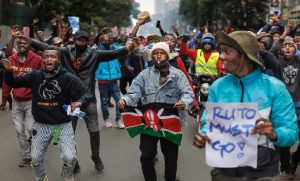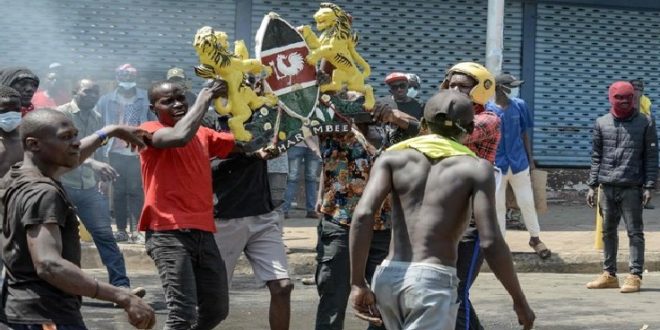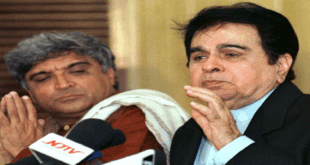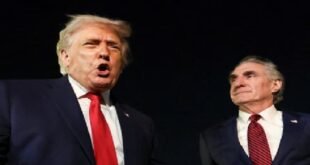02-10-2024
NAIROBI: In May, Kenyan President William Ruto came to Washington on an official state visit. The White House held a glamorous state dinner in his honor; Ruto also attended an Oval Office meeting with US President Joe Biden and participated in an economic investment forum with Vice President Kamala Harris. The visit and red-carpet treatment Ruto received were intended to highlight the tremendous potential of Kenya, one of Africa’s most dynamic democracies.
 Just one month later, Ruto was back home facing nationwide protests over a proposed bill to raise taxes. The Kenyan government needed more revenue to pay down its massive debt burden, which it accumulated mostly through deals with China that were riddled with dubious terms and kickback arrangements.
Just one month later, Ruto was back home facing nationwide protests over a proposed bill to raise taxes. The Kenyan government needed more revenue to pay down its massive debt burden, which it accumulated mostly through deals with China that were riddled with dubious terms and kickback arrangements.
The protests were largely led by Kenya’s youth, who recognized that there’s one thing preventing their country from reaching its full potential: corruption.
I traveled to Kenya amid the demonstrations this summer with CARE, an international humanitarian agency that delivers emergency relief and executes long-term international development projects. We felt Kenyans’ frustration everywhere we traveled. Nearly every conversation found its way back to the issue of governance.
This sentiment was especially noticeable among young people. According to the Ichikowitz Family Foundation’s 2024 African Youth Survey, nearly 60 percent of young Africans want to leave their home countries, one of the main reasons being corruption. Even in Kenya which has a good democratic tradition, political stability, and impressive economic growth people we spoke to described how too many of the country’s resources are lost, stolen, or wasted by corrupt or incompetent government officials.
Kenya’s former auditor general estimated that around half of the country’s debt can likely be attributed to corruption. It’s no wonder that Kenyans are angry. Corruption does not just hold back the economy; it saps the spiritual health of the nation. Democracy feels like a sham when bribes among elites rather than votes control public policy.
Poor governance creates a vicious circle of corruption, inefficiency, and underdevelopment. In Kenya and elsewhere, it has also provided fertile ground for predatory foreign actors such as Russia and China to bribe their way into contracts and influence.
 Over the last 15 years, leaders in Kenya have financed major infrastructure projects by taking out loans from Chinese banks to pay Chinese construction companies. Many of the projects were of poor quality. Some never even materialized, such as a nearly $5 billion rail project that has become the target of criminal corruption investigations and remains unfinished seven years after construction began.
Over the last 15 years, leaders in Kenya have financed major infrastructure projects by taking out loans from Chinese banks to pay Chinese construction companies. Many of the projects were of poor quality. Some never even materialized, such as a nearly $5 billion rail project that has become the target of criminal corruption investigations and remains unfinished seven years after construction began.
The deals often included payoffs to government officials, who continued taking on more loans from China, the World Bank, and others to finance payments on the original debt. Kenya’s debt liability has since ballooned to $80 billion, and China is now the country’s largest bilateral creditor.
After weeks of protest, Ruto appointed a new cabinet and has pledged to enact serious reforms to tackle corruption. There is hope for change. Even so, the United States needs to be a better partner in efforts to eliminate graft and bribery in Kenya and across Africa.
We should lean more heavily on political leaders to crack down on corruption as a condition for securing economic deals with the United States. We should support civil society leaders, investigative journalists, and others who can hold government officials accountable. We should offer technical assistance to empower anti-corruption institutions, use technology to improve government efficiency and reduce opportunities for bribes, and improve parliamentary oversight. (Int’l Monitoring Desk)
 Pressmediaofindia
Pressmediaofindia




